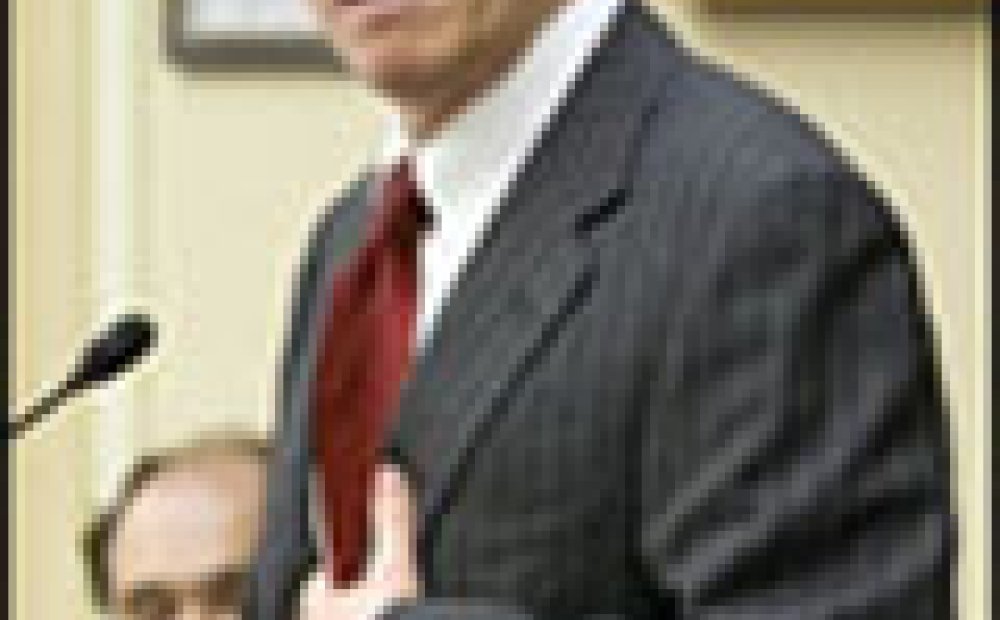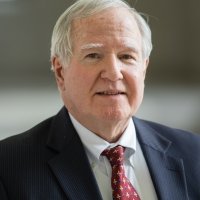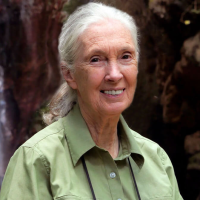Conservation, Health and Development: Connecting Science and Practice

On March 10th, 2009 Wilson Center on the Hill and the Environmental Change and Security Program hosted a seminar featuring Jane Goodall, Ph.D., DBE, Founder of the Jane Goodall Institute and UN Messenger of Peace, with opening remarks by Congressman Bart Gordon, Chairman of the House Committee on Science and Technology. Kent Hughes, director of the Program on Science, Technology, America, and the Global Economy at the Woodrow Wilson Center, began the briefing by recognizing the importance of sustainability and welcoming Chairman Gordon.
Chairman Gordon's remarks focused on several current efforts by the Congress to achieve greater sustainability and security. The America Competes Act, recently passed by Congress, is designed to improve investments in math and science education in the United States, and also help fund environmental security and sustainability efforts. Chairman Gordon noted the environmental concern that cell phones create as an example of the broader approach that will be necessary to address these concerns in the future. Coltan (columbite-tantalite), a rare element currently mined in the Congo, is essential to the production of cellular technology. The mining practices have resulted in significant environmental damage and the displacement of local populations. Chairman Gordon suggested that, in addition to developing local measures to minimize the impact of the mining, the United States and other countries that use cellular technology should encourage recycling as an important method of conservation.
Jane Goodall began her presentation with a short video about her first trip to Tanzania in which she began her lifelong study of chimpanzees. This year marks the 50th anniversary of the study of the chimpanzee population of the Gombe National Park in Tanzania. When the biological study of chimpanzees began, their resemblance to human beings was completely unknown. Today, Goodall noted, we recognize that the DNA of a human being and a chimpanzee differ by only 1% and a chimpanzee's brain is more similar to a human's than any other species. She also explained how humans and chimpanzees are susceptible to the same diseases and that chimpanzees are capable of creating tools, a capability once thought to only belong to humans.
Goodall also described the similar emotional capacities of humans and chimpanzees. She mentioned that chimpanzees "swagger, hold hands, and shake their fists." They are prone to anger and even engage in primitive warfare. However, they also exhibit a capacity for love and altruism, particularly in familial bonds. Nonetheless, chimpanzees have not achieved a human's ability to create a complex spoken language or matched human's vastly superior intelligence. With that superior intelligence, Goodall asked why the most intellectual beings are "destroying poor Mother Earth." Goodall explained that if all people on the earth had the same standard of living as most Americans, we would need three to six more planets.
In order to save the planet, Goodall stressed the importance of finding a solution to abject poverty and rapid population growth. The Jane Goodall Institute (JGI) has encouraged local Tanzanians to communicate their needs in a program called TACARE - "Take Care." Based on these responses, the JGI determined the most urgent needs to be in the areas of health and education. In response, the JGI has developed programs to provide clean water, sustainable farming methods, microcredit lending, and education on AIDS and family planning. These methods are designed to raise living standards, decrease population levels, and support sustainable development.
Goodall then turned to the issue of conservation and introduced Lilian Pintea, a geospatial scientist working with JGI in Tanzania. Lilian Pintea described the role satellite imaging can play in preserving ecosystems. According to Pintea, Landsat Satellite Imagery can monitor trees, households, food abundance, and slopes over time. By highlighting changes over time, satellite imagery raises awareness of environmental erosion and can encourage the preservation of land for use by both animals and humans.
Goodall mentioned the important potential of utilizing satellite imaging technology for conservation. By introducing poor Africans to sustainable farming methods and providing them with entry to international markets, abject poverty can be reduced for currently poor populations. She has urged that poor communities set aside at least thirty percent of its land for conservation and stressed the importance of education. One example of a successful conservation program is the Tanzanian farmers who are now part of Green Mountain Coffee Roasters. Education also plays an important role. For example, a program called "Roots & Shoots" teaches children how to grow seedlings. This revolutionary program now operates through nine thousand branches in a hundred countries and has made young people better stewards, helping preserve the land for future generations.
Goodall called the Global Climate Negotiations "extraordinarily exciting" and stressed the critical role government must play in negotiating treaties that preserve and protect the environment. She encouraged policymakers to consider Costa Rica's program of paying farmers to preserve forests and mentioned that the Congo Basin is currently threatened by China's interest in exploiting it for its oil and minerals.
Goodall believes that development projects must begin small, become accepted by the population, and then expanded in scale. Goodall believes that greater integration of regional projects can benefit health, conservation, and poverty alleviation at the same time. In a new book due out in September 2009, Goodall offers more insight into the current debate on environmental security and sustainability. She believes that wiser decisions in the future will ensure a better world for humans and animals to live in.
Drafted by Andrew McNamara and edited by Elizabeth Byers.
Speakers

Former Director, Program on America and the Global Economy, Woodrow Wilson Center

Hosted By

Environmental Change and Security Program
The Environmental Change and Security Program (ECSP) explores the connections between environmental change, health, and population dynamics and their links to conflict, human insecurity, and foreign policy. Read more
